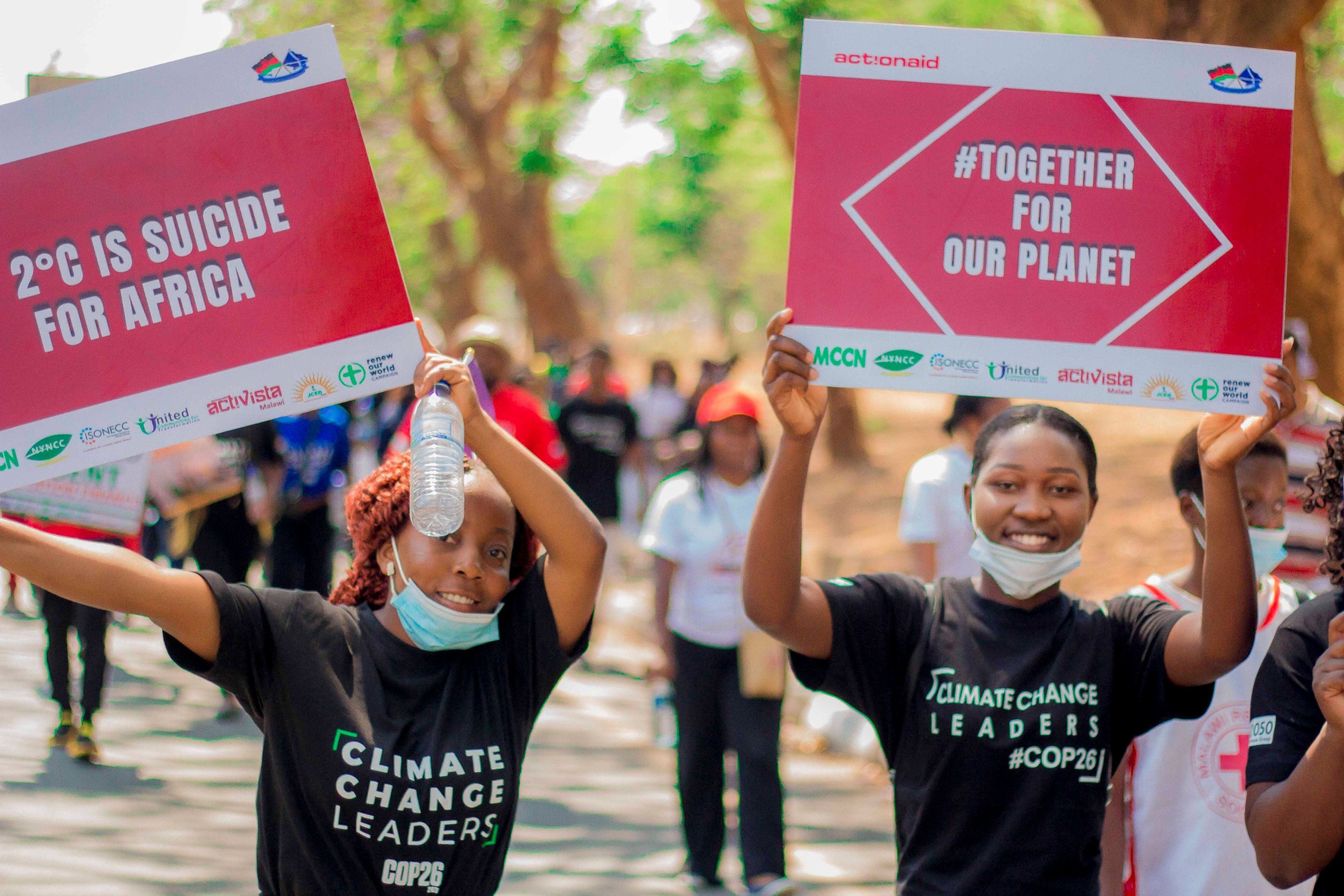Guest Post: Rachel Cameron, SMP Youth Committee
31 May 2022
We are delighted to share this guest post with you from Rachel Cameron, SMP Youth Committee. Rachel has been an active member of the Youth Committee since September 2018, has engaged with former Malawian President Peter Mutharika, met SMP Co-Patron Princess Anne and is a brilliant youth voice advocate, innovator and writer. We are pleased to share this latest blog with you from Rachel discussing women and Climate Change.
“A sick nation is a non-productive nation”
Climate change affects everyone. No matter what country you live in.
Many are concerned how climate change will affect them and their future. According to statistics, women are more likely to be impacted by climate change than men. Global Citizen says: “Heatwaves, droughts, rising sea levels, and extreme storms disproportionately affect women. That’s because women are more likely to live in poverty than men, have less access to basic human rights like the ability to freely move and acquire land, and face systematic violence that escalates during periods of instability.” (Source: https://www.globalcitizen.org/en/content/how-climate-change-affects-women/ )
Therefore, I felt it was important to find out more on how women feel about climate change and how they think climate change will impact their future. Through the Scotland Malawi Partnership, I have been able to get comments from one of the young climate leaders in both Malawi and in Scotland.
Temwani is a young climate leader from Malawi. She is about to enter her 4th year of her electronics and computer engineering degree at the University of Malawi. Temwani said that climate change affects Malawi as the high temperatures affect productivity of labourers. Climate change has affected her through drought and low yields on the farm she grew up on. The droughts meant that watering holes dried up resulting in her walking miles for water.
The future looks very worrisome for Malawi due to climate change. Temwani said that air pollution will result in more airborne diseases. Furthermore, more droughts and floods will mean a decline in Malawi’s economy as they rely heavily on agriculture. Temwani is also concerned about a rise in malaria and cholera cases as a result of climate change. Malawi is already one of the worst affected countries for malaria. A rise in temperatures will mean that mosquito breeding will also rise hence their fight against malaria will live on. Floods will also increase their cases of cholera. She said: “This concerns me a lot as these diseases are already fatal and the inadequate resources in the hospitals is a major factor in the fatality rate.”
In order to protect her country, she believes that people should try and make their environment as clean as possible so that if the floods hit harder there is less anxiety around waterborne diseases. Furthermore, she believes the country should venture into more irrigation, so they do not have to rely so heavily on rain-fed agriculture. Also, having good construction and drainage systems in order to prevent stagnant water and in their building plans they should include vegetation.
Her final comment was: “A sick nation is a non-productive nation” and she truly believes this is how climate change will affect her and the country she cares deeply for.
Temwani’s comments are worrying, especially as the impact on her country is fatal. I find it frustrating how little access Malawians have to resources. I found Temwani really inspiring. Her passion for climate change is very obvious.
Alex is a young climate leader from Scotland. She has a degree in Sustainable Development from the University of St Andrews. She said: “The Scottish climate is a lot wetter than it used to be, and this is causing more floods... Climate change impacts Scottish crops, travel and energy use...”. Alex also noted that the 4 seasons in Scotland were becoming less distinct. It personally impacts Alex through her ability to support people to change their behaviour and take the issue seriously as well as amending her own behaviour.
She said that to influence climate change, she and the rest of Scotland should use less and waste less. Practically, this means buying fewer new products, reducing plastic consumption, using public transport more, less air travel just to name a few of the behavioural changes that can be made.
She believes Scotland’s future is affected by climate change. She is concerned about increased flooding, loss of coastal habitat, homes, buildings and resources especially in low-lying coastal areas as they are at risk from rising sea levels.
Alex’s final comment was: “As a citizen of Scotland, I believe we must implement significant behaviour changes to fulfil our duty to the world to reduce out impact and meet global climate change targets.”
Whilst their comments may be different, I believe this proves just how much of a global issue climate change really is. Whilst our 2 countries are unique in their own way, we are one planet, and we all need to play a role in helping to protect it.


